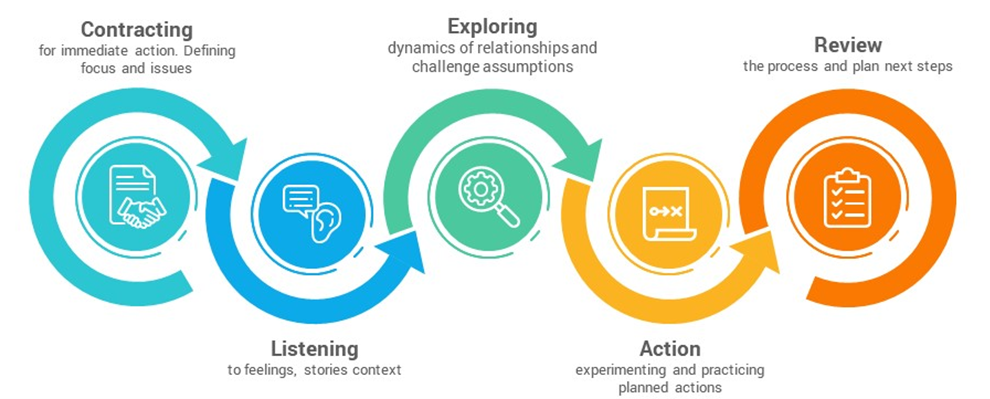
Management in a complex, changing world
Effective delegation is a critical skill for managers at all levels. Yet, it is often misunderstood and underutilized. Delegation is not just divvying and assigning tasks to subordinates; it’s a strategic process that can improve productivity, foster growth, and maximize the talents of a team. In this blog, we’ll explore what every manager should know about delegation and how to be an effective delegator.
Understanding Delegation:
Delegation is the process of assigning tasks, responsibilities, and authority to subordinates. It’s not about passing off work you don’t want to do; it’s about leveraging the skills and capabilities of your team to achieve collective goals. Delegation of work allows managers to focus on more important tasks and to develop their team members’ skills.
Here are some key principles to consider when delegating work:
- Identify the Right Tasks: Not all tasks are suitable for delegation. Managers should focus on assigning tasks that can be handled by team members while ensuring they align with individual skills and capabilities. Avoid tasks that are beyond the capabilities or resources of your team members.
- Identify the Right People: While all employees assume responsibility for specific tasks as part of their jobs, some people are capable of doing more than the minimum. These are ideal candidates for delegation. They should be both skillful at their work and highly motivated. Such people will welcome the challenge of additional tasks and responsibilities and see it as a career opportunity.
- Set Clear Expectations: Delegation starts with clear communication. Managers must define the task, its objectives, and the expected outcomes. They should indicate how they plan to support their employee to accomplish the task.
- Delegate Authority: Delegating responsibility without the necessary authority will hinder the accomplishment of objectives. Managers must empower their team members with the necessary decision-making power to carry out tasks effectively. Of course, they should establish boundaries and guidelines for consulting and escalating decisions when they exceed the granted authority.
- Monitor Work in Progress: Once a team member has accepted a delegated task, do not just forget about it. Managers should hold regular check-ins to ensure the work is proceeding as planned and that any obstacles are being addressed. This is an excellent opportunity to mentor employees and ensure they gain the maximum from their experience.
Benefits of Delegation:
Effective delegation offers numerous benefits for managers, their teams and the organizations that employ them. Here are some of the key advantages:
- Improved Efficiency: Delegating tasks allows managers to focus on strategic activities while team members handle routine, operational tasks. Working collectively on challenging tasks boosts overall productivity.
- Skill Development: Delegation provides team members with opportunities to learn new skills and take on more responsibilities. It can contribute to their professional growth.
- Increased Engagement: When employees feel trusted and empowered, their job satisfaction and motivation levels rise, leading to higher engagement.
- Building Trust: Trust is the foundation of delegation. When managers delegate effectively, it builds trust and strengthens the manager-employee relationship. It also builds trust within the work group since team members see each other as capable and proficient.
Common Delegation Challenges:
Delegation is not without its challenges. Managers will encounter obstacles that hinder the delegation process. Here are a few common challenges and tips to address them:
- Lack of Trust: Managers may hesitate to delegate because they doubt their team member’s ability to handle the task effectively. It’s important to think carefully about assigning a task to ensure it goes to the person who is in the best position to accomplish it.
- Micromanagement: Some managers struggle to let go and constantly interfere with the delegated task, undermining the employee’s autonomy. Once assigned, let the team member manage the task as they see fit. Offer your help, but do not impose your will.
- Inadequate Communication: Failure to communicate clearly can lead to misunderstandings, missed deadlines, and subpar results. Hold regular check-ins to monitor how the work is going and take corrective action when needed to ensure success.
- Work Overload: Don’t overdo delegation and don’t use it as an excuse to dump more work onto employees. Be conscious of how much work you have already assigned before asking employees to do even more. Ensure the workload is equally distributed so individuals don’t feel they are being treated unfairly.
Conclusion:
Delegation is a vital skill for managers, and when done effectively, it can lead to improved efficiency, skill development, and enhanced team engagement. By understanding the principles of delegation, recognizing its benefits, and overcoming common challenges, managers can become more successful. Mastering effective delegation can be the key to your team’s progress and your own professional growth as a leader.

